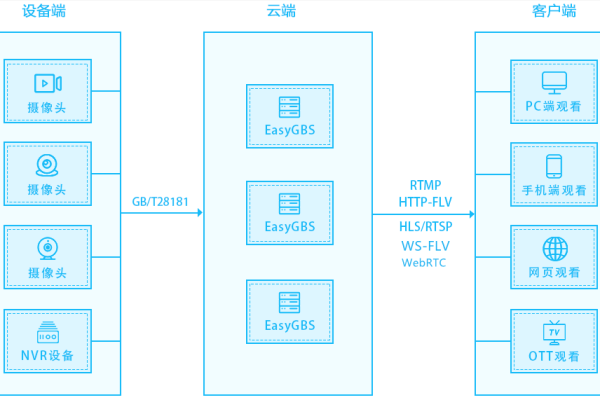如何进行CDN文件检测?
- 行业动态
- 2024-12-10
- 3
CDN文件检测
在现代互联网应用中,CDN(内容分发网络)扮演着至关重要的角色,通过将内容缓存到全球各地的节点服务器上,CDN能够显著提高网站的访问速度和稳定性,确保文件正确分发到各个CDN节点是保证用户体验的关键,本文将详细介绍如何进行CDN文件检测,以确保文件成功分发并保持一致性。
一、检查HTTP响应状态码
HTTP响应状态码是检测CDN文件分发是否成功的第一步,通过发送HTTP请求到CDN服务器,可以查看返回的状态码,通常情况下,成功的HTTP请求会返回状态码200,这表示请求成功且服务器返回了预期的响应,以下是具体步骤:
1、发送HTTP请求:使用浏览器或者命令行工具(如curl或wget)发送HTTP请求到CDN服务器,可以使用以下命令:
curl -I http://example.com/yourfile.txt
该命令将返回HTTP响应头信息,包括状态码。
2、解析响应头信息:获取到响应后,解析响应头信息以确认文件是否正确分发,响应头中包含了很多有用的信息,如缓存控制、文件大小、文件类型等,这些信息可以帮助进一步确认文件是否正确分发。
二、验证文件内容一致性
除了检查HTTP响应状态码外,验证文件内容的一致性也是确保文件正确分发的重要步骤,通过对比源服务器和CDN服务器上的文件内容,可以确保文件在传输过程中没有发生任何改变。
1、文件哈希值对比:对源服务器和CDN服务器上的文件生成哈希值(如MD5、SHA256等),并进行对比,如果哈希值一致,则说明文件内容没有被修改,分发成功,可以使用以下命令生成MD5哈希值:
hash -d /path/to/source/file hash -d /path/to/cdn/cached/file
然后对比两个哈希值是否一致。
2、比对:除了哈希值对比外,还可以通过直接对比文件内容的方式来验证文件的一致性,可以使用文本比较工具(如diff)来比较两个文件的内容,确保文件内容完全一致。
三、监控CDN日志
CDN日志是记录CDN服务器运行状况的重要数据,通过分析日志可以了解文件分发的详细情况,CDN日志通常包括访问日志和错误日志两部分。
1、分析访问日志:访问日志记录了每一次对CDN服务器的访问情况,包括访问时间、请求URL、响应状态码等信息,通过分析访问日志,可以了解文件是否被成功访问,是否有异常情况发生。
2、监控错误日志:错误日志记录了CDN服务器在运行过程中发生的错误情况,通过监控错误日志,可以及时发现并解决文件分发过程中出现的问题,确保文件分发的顺利进行。
四、使用CDN提供的管理工具
大多数CDN服务提供商都会提供一些管理工具,帮助用户监控和管理文件分发情况,这些工具通常包括文件管理、日志分析、性能监控等功能。
1、文件管理工具:文件管理工具可以帮助用户查看文件在CDN服务器上的存储情况,了解文件分发的详细信息,通过文件管理工具,可以轻松查看文件的上传时间、文件大小、文件类型等信息。
2、日志分析工具:日志分析工具可以帮助用户分析CDN服务器的访问日志和错误日志,了解文件分发的详细情况,通过日志分析工具,可以及时发现并解决文件分发过程中出现的问题。
3、性能监控工具:性能监控工具可以帮助用户监控CDN服务器的运行状况,包括服务器响应时间、请求数量、带宽使用情况等,通过性能监控工具,可以了解文件分发的性能情况,确保文件分发的顺利进行。
五、检测文件的访问速度
文件的访问速度也是检测文件分发成功的重要指标之一,通过测试文件的访问速度,可以了解文件在CDN服务器上的分发情况,确保文件能够快速加载。
1、测速工具:可以使用一些测速工具(如Pingdom、GTmetrix等)来测试文件的访问速度,通过测速工具,可以了解文件在不同地区的访问速度,确保文件能够快速加载。

2、用户体验测试:除了使用测速工具外,还可以通过用户体验测试来了解文件的访问速度,通过收集用户反馈,可以了解文件在实际使用中的访问速度,确保文件能够快速加载。
六、使用在线工具检测
一些在线工具可以自动检测网站是否使用了CDN,并提供详细的报告,这些工具通过扫描网站的技术栈,可以识别出是否使用了CDN服务,以下是一些常用的在线工具:
1、BuiltWith:访问BuiltWith网站,输入域名,该工具会扫描网站的技术栈并显示使用的技术,包括CDN服务。
2、Wappalyzer:Wappalyzer提供浏览器扩展和在线服务,可以检测网站所使用的各种技术,包括CDN,安装Wappalyzer浏览器扩展,访问目标网站,Wappalyzer会自动显示检测到的技术信息。
七、检查资源的域名和DNS记录
CDN通常会将网站资源(如图片、CSS文件和JavaScript文件)分布到不同的域名上,这些域名通常是CDN服务提供商的专用域名或子域名,通过检查资源的域名和DNS记录,可以进一步确认是否使用了CDN。
1、检查资源加载域名:在浏览器中打开网站,使用开发者工具(如Chrome的开发者工具)查看页面资源的加载情况,如果发现资源文件来自不同的域名,这些域名通常是CDN的域名。
2、对比域名与CDN提供商:将资源的域名与常见的CDN提供商的域名进行对比,如Cloudflare、Akamai、Amazon CloudFront等,如果发现资源域名与这些提供商的域名相匹配,则说明该网站可能正在使用CDN。
3、查看DNS记录:使用DNS查询工具(如dig、nslookup或在线DNS查询工具),查询网站的DNS记录,如果发现DNS记录中包含CDN服务提供商的名称或IP地址,则表明该网站可能使用了CDN。
八、询问网站管理员或开发团队
如果您有机会与网站管理员或开发团队沟通,可以直接询问他们是否使用了CDN,网站管理员通常会了解网站的技术细节,并能够提供准确的信息,以下是一些建议:
1、直接询问:通过电子邮件、在线聊天或其他沟通方式,直接询问网站管理员是否使用了CDN,他们通常会乐意提供相关信息。
2、查看网站文档:有些网站会在其技术文档或博客中提到使用的技术栈和服务,查看这些文档,您可能会发现关于CDN使用的详细信息。
九、使用第三方插件和扩展
一些浏览器插件和扩展可以帮助您检测网站是否使用了CDN,以下是一些常用的插件和扩展:
1、Wappalyzer:Wappalyzer是一款流行的浏览器插件,可以检测网站所使用的各种技术,包括CDN服务,安装Wappalyzer插件后,访问目标网站,插件会自动显示检测到的技术信息。
2、BuiltWith:BuiltWith也提供了浏览器扩展和在线服务,可以检测网站的技术栈,包括是否使用了CDN,安装BuiltWith扩展后,访问目标网站,BuiltWith会自动显示检测到的技术信息。
十、关注网站性能优化措施
使用CDN是网站性能优化的一种常见措施,通过分析网站的性能优化策略,也可以判断是否使用了CDN,以下是一些建议:
1、分析性能优化策略:网站通常会采取多种性能优化措施,如压缩资源文件、启用缓存、使用CDN等,通过分析这些策略,您可以判断网站是否使用了CDN。
2、查看优化效果:CDN通常会显著提高网站的性能,尤其是在全球范围内访问,通过观察网站的性能优化效果,您可以进一步确认是否使用了CDN。
十一、了解网站规模和流量
大型网站和高流量网站通常更有可能使用CDN,以确保其性能和稳定性,以下是一些建议:

1、分析网站规模:大型网站(如电商平台、社交媒体网站等)通常会使用CDN,以应对高流量和全球用户访问需求,通过分析网站的规模,您可以判断其使用CDN的可能性。
2、查看流量统计:通过查看网站的流量统计数据(如Alexa排名、SimilarWeb数据等),您可以进一步判断网站是否有使用CDN的需求。
十二、使用Ping和Traceroute命令
使用Ping和Traceroute命令可以帮助您了解网站与CDN节点之间的网络连接情况,以下是具体步骤:
1、Ping命令:使用Ping命令测试网站与CDN节点之间的连通性。
ping example.com
该命令将显示网站的响应时间和丢包率,帮助您了解网络连接的稳定性。
2、Traceroute命令:使用Traceroute命令跟踪数据包从您的计算机到目标网站的路径。
traceroute example.com
该命令将显示数据包经过的各个网络节点,帮助您了解数据包的传输路径和延迟情况。
十三、归纳与最佳实践
检测CDN文件分发成功是确保文件能够快速加载、用户体验良好的重要步骤,通过检查HTTP响应状态码、验证文件内容一致性、监控CDN日志、使用CDN提供的管理工具、检测文件的访问速度等方法,可以全面了解文件分发的情况,确保文件分发的顺利进行,借助在线工具和第三方插件,可以提高检测的准确性和效率,以下是一些最佳实践建议:
1、定期检测:定期检测CDN文件分发情况,确保文件始终正确分发并保持一致性。
2、自动化检测:使用自动化脚本和工具进行CDN文件检测,提高效率和准确性。
3、多维度检测:结合多种检测方法,全面了解文件分发情况,确保检测结果的准确性。
4、及时解决问题:及时发现并解决文件分发过程中出现的问题,确保文件分发的顺利进行。
5、持续优化:根据检测结果和用户反馈,持续优化CDN配置和性能,提升用户体验。
十四、常见问题解答(FAQs)
1、什么是CDN文件分发?
CDN文件分发是指将网站的静态内容(如图片、CSS、JavaScript等)分发到全球各个边缘节点,以提高网站的访问速度和稳定性,通过将内容缓存到离用户最近的服务器上,CDN能够显著减少内容的传输时间和延迟,从而提升用户体验。
2、如何确认CDN文件分发成功?
确认CDN文件分发成功可以通过多种方法,包括检查HTTP响应状态码、验证文件内容一致性、监控CDN日志、使用CDN提供的管理工具、检测文件的访问速度等,通过这些方法,可以全面了解文件分发的情况,确保文件正确分发并保持一致性。
3、如何解决CDN文件分发失败的问题?
如果遇到CDN文件分发失败的问题,可以从以下几个方面入手解决:检查CDN配置是否正确,包括域名解析是否正确、CDN加速区域是否选择正确等;检查源服务器是否正常,确保文件正确上传到源服务器上;如果以上方法都无法解决问题,建议联系CDN服务商的技术支持,向他们报告问题并寻求解决方案。







